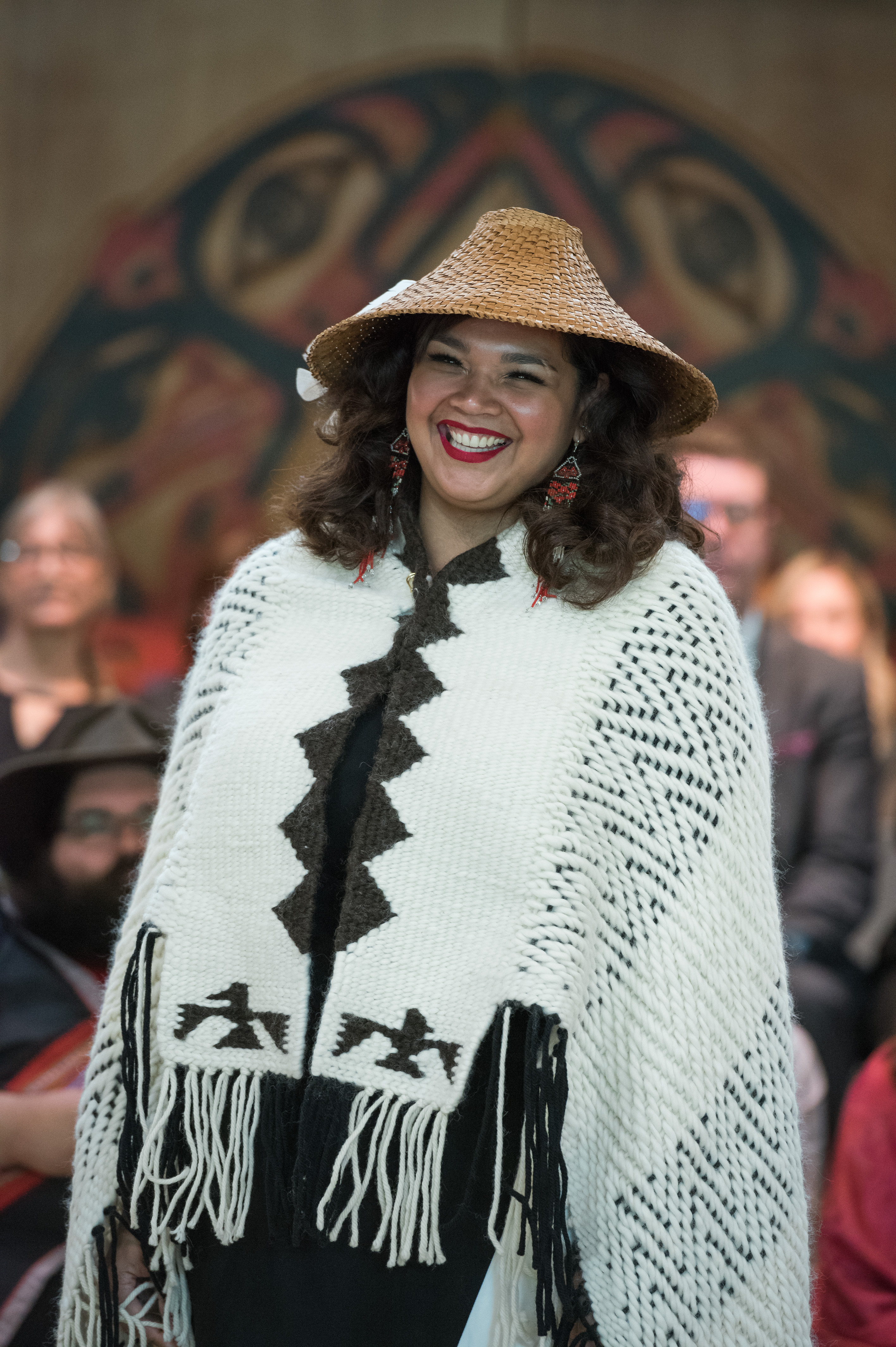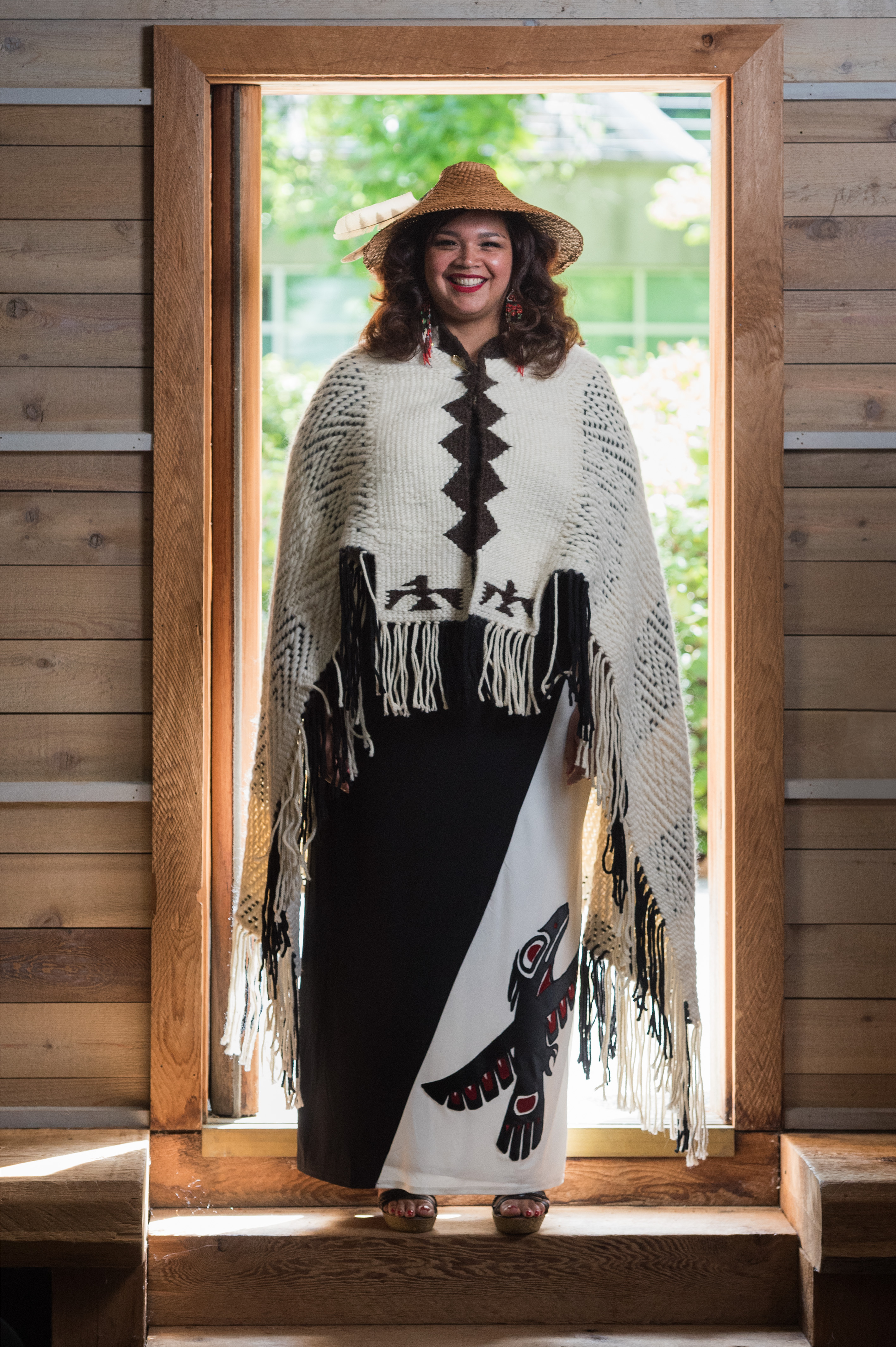Biography
Jessica La Rochelle is the granddaughter of Siyamtelot and Swelimeltxw (Shirley and Rudy Leon). She shares her traditional name, Lhkwemiya, with her mother. Her great-grandfather gave her mother the name and it was passed on to Jessica by her maternal grandparents. There is a set of mountains known as the three sisters near her home territory; her name refers to the third sister. Jessica is Stó:lō, Okanagan, and also has Trinidadian ancestry on her father’s side. Jessica is very proud to be the Assistant Director of NITEP, the Indigenous Teacher Education Program, and the Manager for Indigenous Education in the Faculty of Education. Her grandmother is a graduate of NITEP. Jessica is an alumna of University of British Columbia (UBC), completing her Bachelor of Arts degree there in 2006 and her MEd in Educational Administration and Leadership with a focus on Leadership in Indigenous Education in May 2018. At NITEP, Jessica continues to be motivated by the future teachers and leaders in the program to provide an engaging and positive learning experience and evoke change in Indigenous education.
I am so grateful to work in an environment that fuels my passion for Indigenous education and feeds my spirit. My roles allow me to travel to Indigenous communities to engage with potential students and educational leaders to recruit them to our programs, work with an amazing team of educators and strong advocates, engage with leaders in Indigenous education to promote and facilitate reconciliation and resurgence, and connect with colleagues within the Faculty of Education and across campus to support and empower Indigenous students. As a Wellness Liaison, the lead for the NITEP Mental Health and Wellness program and member (former chair) of the Aboriginal Mental Health and Wellness Working Group, I am passionate about creating and maintaining safe spaces for students to have meaningful discussions about mental health and also what it means to be an Indigenous student at a mainstream university.
Meeting Jessica La Rochelle
What is your most memorable experience from your time in the Faculty of Education?
I was in the Squamish Nation (SQEL) Educational Administration and Leadership MEd cohort where we focused on Leadership in Indigenous Education. One of our courses was learning about our language and our connection to the land. It was during the summer in 2017 so we went to Stanley Park to witness the canoes coming ashore during Tribal Journeys. There were about 11-12 canoes and the whole process took over an hour. It was so amazing to witness because each canoe would approach the beach and ask permission to come ashore. The welcoming party would welcome them ashore. This all took place in different First Nations languages. Each canoe was from a different Nation and spoke a different language. The welcoming party sang songs to welcome them and celebrate their arrival. It may not sound much but being immersed in my culture and hearing not necessarily my language but the language of xwelmexw (Indigenous peoples) was something I will cherish always. It reminded me of the stories my grandpa would tell me about our traditions. It meant so much to me that I could experience my culture through my graduate studies and be able to talk to my grandparents about it.
Where has your education from the Faculty of Education taken you in your career?
I have been the Assistant Director for the Indigenous Teacher Education Program (NITEP) since 2010 and in the past couple of years have taken on the role of Manager, Indigenous Education in the Faculty of Education. I feel like my education has given me that extra step to elevate conversations of advancing Indigenous priorities in the Faculty of Education and making space for Indigenous knowledges.
Where do issues of inclusion find a place in your life or at work?
Speaking on my own behalf, I sometimes see that Indigenous peoples are still viewed through a deficit lens: we need more support, more resources, our programs are not as academically rigorous. We have to try harder to be seen as equal to our non-Indigenous peers. I work with an amazing team of people who constantly challenge this problematic thinking and also question the idea that it is up to Indigenous people to do this work. Everyone has a role to play in reconciliation. See the system as the flaw rather than the individual.
Do you have any words of wisdom for current students? Newly graduated folks?
I think of the legend that inspired the NITEP logo of trickster Raven stealing the sun. When the world was first created, Raven saw that the people were living in darkness and struggling. So, he flew through the hole in the sky to steal the sun and bring light to the people. In NITEP, we consider education to be that light and we encourage our students to be like the trickster Raven and pursue education as a pathway to give back to their communities. Current students and new graduates, I raise my hands in thanks and respect to you for choosing to pursue education and inspiring future generations.

